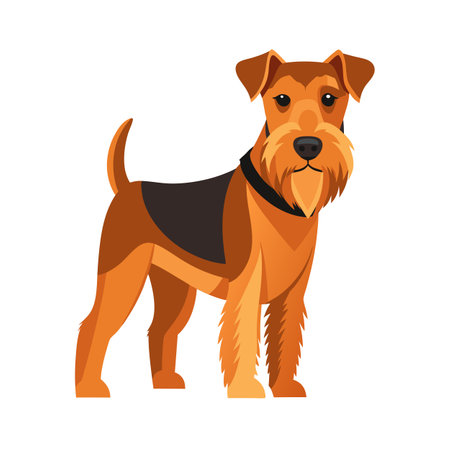Introduction to British Dog Training
Dog training in the United Kingdom is deeply rooted in both tradition and a strong sense of responsibility towards animal welfare. Over centuries, the British have fostered a unique relationship with their canine companions, considering them not just pets but valued members of the family. This cultural bond has shaped the methods used to train dogs across the country. From rural countryside homes to bustling city parks, responsible ownership and positive interaction remain at the core of British dog training values. In recent years, modern approaches focusing on science-based techniques have become increasingly popular, yet these are often balanced with longstanding traditions that emphasise patience, consistency, and mutual respect. The table below illustrates key aspects of British dog training culture:
| Aspect | Traditional Values | Modern Approaches |
|---|---|---|
| Relationship with Dogs | Companionship, loyalty, working partnership | Family member, emotional support |
| Training Methods | Repetition, routine, gentle discipline | Reward-based, positive reinforcement |
| Community Attitudes | Respect for others, responsible pet ownership | Focus on welfare, inclusivity in public spaces |
This blend of heritage and innovation continues to define how Britons train and care for their dogs today, setting a global example for ethical and effective canine companionship.
Traditional Training Methods in the UK
Traditional dog training methods in the United Kingdom are deeply rooted in both obedience and practical functionality, reflecting the nations rich history of working dogs and pet companionship. These longstanding approaches have evolved from rural estates, hunting grounds, and urban households, each contributing unique philosophies to British dog training culture.
Obedience Classes: Foundation of Manners
Obedience classes have long been a staple for British dog owners seeking well-mannered companions. Traditionally held at local community halls or parks, these group sessions focus on essential commands such as sit, stay, heel, and recall. The aim is to instil discipline, respect, and social harmony between dogs and humans, values highly regarded in British society. Trainers often use firm but fair guidance, favouring repetition and positive reinforcement over punitive measures.
Working Dog Traditions: Practical Skills and Heritage
The UK’s countryside heritage has significantly influenced dog training practices. Working breeds such as Border Collies, Labradors, and Springer Spaniels have historically been trained for specific tasks like herding livestock or retrieving game. Training methods for these dogs emphasise reliability, stamina, and partnership with handlers—skills honed over generations to support rural livelihoods.
Comparison of Traditional British Training Methods
| Training Method | Main Focus | Typical Breeds | Setting |
|---|---|---|---|
| Obedience Classes | Manners & Socialisation | All breeds | Community centres/parks |
| Working Dog Training | Task-specific skills (herding, retrieving) | Collies, Labradors, Spaniels | Countryside/estates |
Philosophical Underpinnings
The British approach to traditional dog training is shaped by a philosophy of mutual respect and partnership. While there is an emphasis on consistency and clear boundaries, trainers often strive to maintain a bond of trust rather than dominance. This balance reflects broader cultural values—manners matter, yet kindness prevails.

3. Modern Approaches to Dog Training
In recent years, dog training in the UK has seen a significant shift towards modern, evidence-based methods that prioritise animal welfare and effective learning. At the forefront of these approaches is positive reinforcement, a technique that rewards desired behaviours with treats, praise, or toys, making it more likely for the behaviour to be repeated. This method not only fosters a strong bond between owner and dog but also encourages trust and motivation.
Another popular contemporary method is clicker training. Utilising a small handheld device that emits a distinct click sound, trainers can precisely mark the exact moment a dog performs the correct behaviour. This clear, consistent feedback accelerates learning and minimises confusion for the dog.
The integration of behavioural science into training has further advanced British dog training practices. Trainers now commonly apply principles from psychology and ethology (the study of animal behaviour) to develop tailored training plans that address individual dogs’ needs and temperaments. This approach helps identify underlying causes for unwanted behaviours and enables more humane and effective solutions.
The following table outlines some key features of these modern training methods:
| Method | Main Principle | Common Tools | Benefits |
|---|---|---|---|
| Positive Reinforcement | Reward desired behaviour | Treats, praise, toys | Builds trust, improves motivation |
| Clicker Training | Mark correct actions instantly | Clicker device, treats | Precision, faster learning |
| Behavioural Science Integration | Tailored to individual needs | Behaviour assessments, customised plans | Addresses root causes, humane solutions |
Modern British dog training reflects a growing emphasis on kindness, scientific understanding, and respect for canine welfare—values increasingly favoured by pet owners across the UK.
4. Balancing Tradition with Innovation
British dog training has long been admired for its deep roots in tradition, yet it continually evolves to incorporate innovative and evidence-based methods. Trainers across the UK are adept at blending heritage techniques—such as reward-based recall and gentle lead work—with modern scientific understanding of canine behaviour. This approach ensures that training programmes are not only effective but also prioritise animal welfare and the unique bond between dog and owner.
The Blend of Old and New
Many British trainers respect classic approaches, like using calm voice commands and consistent routines, while simultaneously adopting positive reinforcement strategies supported by recent research. For example, rather than relying on punitive measures, trainers now focus on motivation, empathy, and clear communication. The result is a well-rounded programme that respects both the dog’s history as a working companion and the latest insights into animal psychology.
Examples of Integrated Training Practices
| Traditional Practice | Modern Enhancement | Benefits |
|---|---|---|
| Whistle Recall | Clicker Training for Precision | Improved response accuracy; positive association with recall cues |
| Lead Walking Etiquette | No-pull Harnesses & Reward-Based Guidance | Reduces stress for dogs and handlers; encourages loose-lead walking through encouragement, not force |
| Verbal Praise | Treat Reinforcement & Marker Words | Strengthens learning through clear markers and immediate rewards |
| Socialisation in Village Greens or Parks | Structured Group Classes with Controlled Exposure | Ensures safe interaction while building confidence and social skills under supervision |
The British Approach in Practice
This seamless integration of tradition and innovation can be observed in many British training schools and community classes. Trainers frequently consult both historical texts and current academic studies to design programmes tailored to a diverse range of breeds and temperaments. By valuing both established wisdom and scientific progress, British trainers foster not only obedient pets but also happy, confident companions who thrive in modern society.
5. Role of Professional Organisations and Regulation
Professional bodies play a pivotal role in shaping dog training standards across the UK, ensuring both trainers and pet owners have access to safe, ethical, and effective guidance. Two prominent organisations—The Kennel Club and the Animal Behaviour and Training Council (ABTC)—stand at the forefront of setting benchmarks and offering accreditation within the industry.
The Kennel Club
The Kennel Club is one of the UK’s oldest and most respected canine organisations. It provides clear codes of practice for trainers and runs the Good Citizen Dog Training Scheme, which promotes responsible dog ownership through structured training programmes. By certifying both trainers and training clubs, The Kennel Club ensures that modern methods are balanced with traditional values, supporting positive reinforcement while respecting British heritage in dog handling.
Animal Behaviour and Training Council (ABTC)
The ABTC serves as an umbrella body, accrediting professionals who meet rigorous criteria in both knowledge and practical skills. This council actively works with government bodies to influence regulation and maintain high welfare standards in animal behaviour and training. Their register helps pet owners find qualified practitioners who adhere to evidence-based practices.
Comparison of Professional Bodies
| Organisation | Main Functions | Impact on Dog Training |
|---|---|---|
| The Kennel Club | Certification, Code of Practice, Public Awareness Campaigns | Promotes responsible ownership; blends tradition with modern methods |
| ABTC | Accreditation, Professional Register, Government Liaison | Ensures evidence-based training; sets professional standards |
Why Regulation Matters
Regulation by these professional bodies not only protects animal welfare but also builds trust among the public. With clear guidelines on acceptable practices, trainers are held accountable, reducing the risk of outdated or harmful techniques being used. For British dog owners, choosing professionals affiliated with these organisations guarantees a commitment to both ethical standards and effective results.
Community, Socialisation, and Everyday British Life
Dog training in the UK goes beyond teaching obedience; it plays a vital role in fostering responsible canine citizenship and promoting harmony within local communities. In towns and cities across Britain, well-trained dogs are not only welcomed but also expected to adhere to specific social norms that reflect both modern expectations and traditional values. Effective training supports positive socialisation, enabling dogs to interact safely with people and other animals in a variety of public spaces such as parks, high streets, and neighbourhoods.
The Importance of Good Canine Citizenship
Brits take pride in their well-mannered dogs, viewing them as extensions of their own etiquette. Properly trained dogs are less likely to cause disturbances or pose risks to others, which is crucial for maintaining peaceful community relations. Dog owners are encouraged to participate in training classes that focus on recall, controlled walking on the lead, and polite greetings. These skills ensure that dogs can be trusted off-lead in designated areas while respecting boundaries and the comfort of others.
Park Etiquette: A British Perspective
Parks serve as communal spaces where British dog owners often congregate. Adhering to park etiquette is essential for safety and enjoyment:
| Etiquette Expectation | Practical Example |
|---|---|
| Lead Control | Dogs should be kept on leads unless clearly marked off-lead areas are available. |
| Cleaning Up | Owners must always clean up after their dogs using biodegradable bags. |
| Respecting Wildlife | Dogs should not chase birds or disturb local wildlife. |
| Polite Greetings | Always ask before allowing your dog to approach another dog or person. |
The Role of Socialisation
Socialisation is central to British dog training philosophy. Puppies are introduced to diverse situations early on—meeting strangers, hearing traffic sounds, visiting cafes, and navigating public transport—to build confidence and adaptability. This approach reduces behavioural issues and helps dogs become well-rounded members of society who can accompany their owners almost anywhere without causing disruption.
Community-Based Training Initiatives
Many British communities offer group training sessions and social walks organised by local councils or charities. These initiatives not only provide structured learning environments but also foster a sense of camaraderie among dog owners. Through shared experiences, both humans and canines learn to navigate everyday challenges together while reinforcing positive behaviours.
A Tradition of Mutual Respect
The British approach blends tradition with contemporary understanding: respect for community spaces, fellow citizens, and animal welfare remains at the heart of dog training practices. By emphasising socialisation and responsible ownership, British communities continue to set high standards for canine behaviour—ensuring that dogs remain cherished companions in everyday life.


